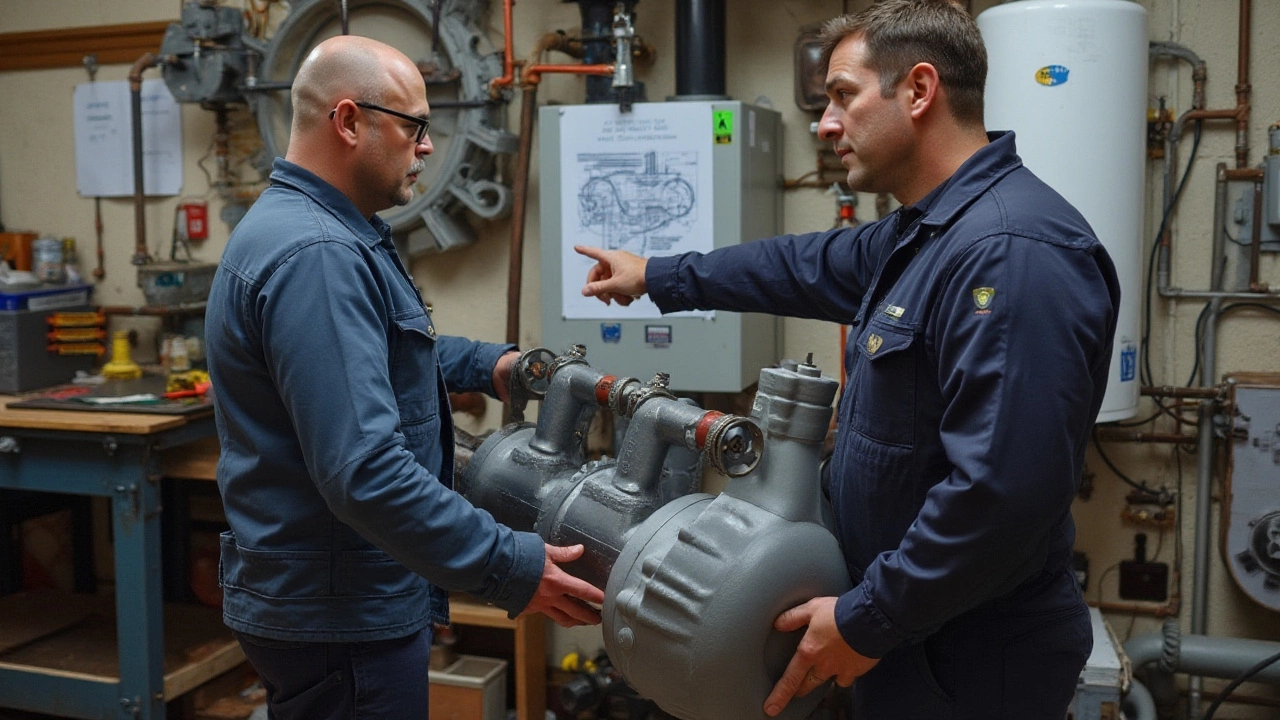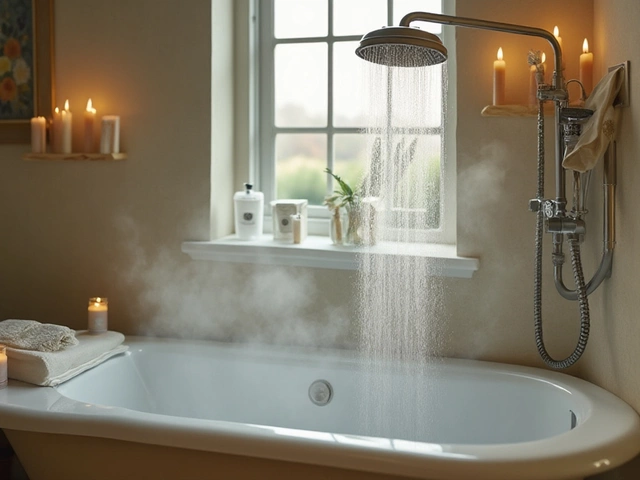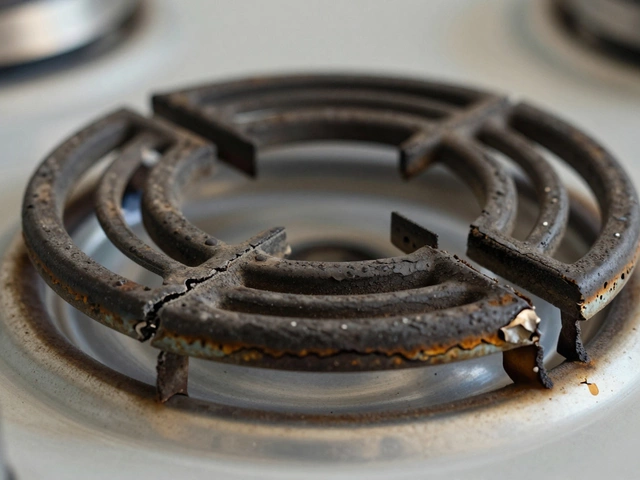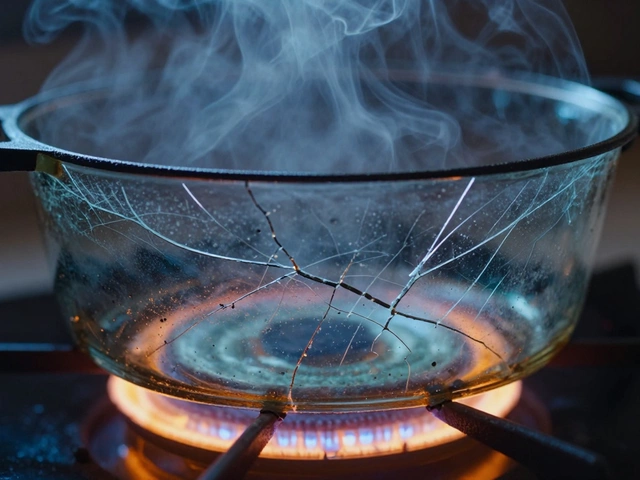Boilers, the unsung heroes of our homes, often throw us into chaos when they decide to take a break. The question of how long it takes to fix them can feel pressing, especially as the chill of the season seeps through the walls. While some issues are solved with a quick tweak or reset, others might demand more attention and time, testing patience and expertise alike.
Understanding the nature of the problem is the first hurdle. A simple thermostat replacement won't keep you waiting long, but swapping out a heat exchanger can have you brewing tea for a while. Let me break down what to expect when your boiler throws a tantrum, how routine care can stave off trouble, and when it might be time to call in the professionals.
- Common Boiler Problems
- Simple Fixes and Estimated Times
- Complex Repairs and Expected Duration
- Factors Influencing Repair Time
- Preventative Maintenance Tips
- When to Call a Professional
Common Boiler Problems
Boilers, much like any hardworking machine, encounter their share of issues over time. These problems can be minor hiccups or major breakdowns, causing concern especially when the warmth they provide becomes irreplaceable during cold months. One of the most frequent issues is the lack of hot water or heating, which can often be traced back to a malfunctioning thermostat or issues with water pressure. Thermostats, responsible for gauging and adjusting temperatures, sometimes lose their calibration or fail entirely. A reset might suffice, but replacement often resolves persistent issues.
Another typical nuisance involves strange noises emanating from the boiler. These sounds, such as banging or whistling, are usually due to air trapped in the system or a buildup of limescale on the heat exchanger, a phenomenon known as kettling. These noises not only disrupt the peace but can signal inefficiencies within the system as well. Flushing the system or using a descaling agent often remedies this problem. Boiler repair experts typically have the best approach to diagnosing specific causes and suggesting the proper corrective action.
Leaking and dripping occur when components such as pressure valves or pump seals fail. A leak often indicates a more serious fault which requires immediate attention to avoid further damage. Pressure loss, another common boiler headache, is often a symptom rather than a cause and can result from water leaks or air trapped in the system. Commitment to regular checks and maintenance is key to identifying these issues before escalating.
"Neglected boilers are ticking time bombs," states engineer James Harwood, emphasizing the importance of routine maintenance.Frozen pipes can also become an issue, particularly affecting the condensate pipe. This pipe carries condensate water outside the house and can freeze in lower temperatures, causing blockages and subsequent functional failures. Thawing them carefully with warm water is a basic remedy, but prevention through insulation is essential. Modern boilers usually have a failsafe to shut down in case of such blockage, yet the manual effort involved afterward is a hassle best avoided.
Lastly, radiator problems, often evidenced by cold spots, suggest air locks or sludge. An uneven heat distribution can be frustrating, leading to uneven room temperatures. Bleeding the radiators or performing a thorough flush can address these issues, improving heat efficiency and comfort. While these heating issues are common, they highlight the varied nature of boiler problems, each requiring specific knowledge and skills to resolve. Addressing them promptly not only ensures continuous warmth but extends the lifespan of your home’s heating system.
Simple Fixes and Estimated Times
When your heating system stares back at you without the customary hum of warmth, it's easy to jump into worst-case scenarios. However, not every issue sends you spiraling into a financial crisis or weeks without heat. Often, boiler repair tasks fall into the realm of simple fixes that can take less time than brewing your favorite cup of chamomile. One of the most common problems is a faulty thermostat. This little device is a communication czar between you and your boiler, dictating when to heat and when to chill out. If it goes on the fritz, replacing it takes about an hour—a quick operation, barely enough time for the repairman to enjoy a coffee. Many modern boilers even offer self-diagnostic features, guiding you or the technician with error codes, streamlining the fix further.
Low pressure in your boiler system is another frequent flyer in the realm of quick fixes. It generally points to a minor issue like a leaky valve or a bleeding radiator, often identified visually or through pressure gauges. Topping up the system with water, essentially like replenishing a drink, usually solves the problem. This operation is straightforward and can take roughly 15 to 30 minutes. While a professional might do this quicker, DIY enthusiasts can tackle it with care, armed with user manuals and how-to videos aplenty across the internet. But remember, the initial diagnosis is key, and it eases the troubleshooting significantly, identifying whether these minor resets truly solve the underlying problem.
"Understanding the easy fixes not only gives homeowners peace of mind but equips them to handle small issues without always going for help," comments Alan Clarke, a long-time heating specialist who has seen the gamut of boiler challenges.
Boilers can also be finicky with their pilot lights going out, an old-school problem in some respects but persistent in boilers yet to embrace newer, networked ignition systems. This typically demands little more than relighting—a gentle task easily completed in 10 to 20 minutes and explained in most boiler manuals. In instances where an airblock causes radiator cold spots, a process known as bleeding the radiators is often necessary. With a bleed key and a handy towel, the task proves elementary, though it may take about 30 minutes per radiator, depending on the number.
Power supplies can trip too, leaving your system inactive as silently as a mouse in the night. This issue, however, can be as simple as resetting a fuse or a breaker, a task that fits easily into the realms of a quarter-hour fix. Likewise, cleaning or replacing clogged boiler filters takes similar time and prevents minor inconveniences from escalating into pressing repairs. Keeping filters clean allows smooth airflow and efficient boiler maintenance, prolonging the life of the system. These small duties, when handled correctly, keep boilers in check and avoid the more intrusive, costly repairs that eat into heating seasons.
Water quality is another aspect to consider; hard water areas might face limescale buildup affecting heat efficiency. Anti-limescale devices can help, though cleaning out the system occasionally should prevent or fix this. Such maintenance takes about an hour and ensures no hidden troubles lurk. If you've optimized your machine home environment, these light jobs maintain boiler efficiency and longevity, reducing stress on components. The idea is reducing surprises and keeping heating downtime minimal during crucial months.

Complex Repairs and Expected Duration
Tending to your home's boiler repair needs can sometimes feel like unraveling a mystery. Complex issues, unlike their simpler counterparts, usually require a bit of detective work and patience. Take, for instance, the ordeal of dealing with a faulty heat exchanger. This intricate component, essential for the boiler's operation, can become riddled with problems. Replacing a heat exchanger is no quick fix; it usually eats up several hours and sometimes stretches into a full day, depending on the model and readiness of replacement parts. It's much like performing surgery on your heating system, requiring precision and care to ensure everything fits back together perfectly.
Another arduous task involves swapping out a circulation pump. The circulation pump plays a pivotal role in moving hot water from the boiler into the heating system, ensuring that every room in your home remains comfortably warm. Should this pump fail, your boiler might take a while to fix, akin to solving a complicated puzzle with many pieces missing. Technicians need to delve into the heart of the boiler, removing and replacing the faulty component, a job which could take anywhere from four to eight hours. Everything hinges on accessibility and the complexity of the existing plumbing.
Then there’s the control board, which serves as the brain of the boiler. Imagine facing a brain surgery of sorts when dealing with control board issues. The delicate nature of these electronics makes this a job for experienced hands only. Swapping out or repairing a control board demands precision, expertise, and a bit of luck when aligning the myriad connections that dictate the boiler’s operation. This process could take a skilled technician half a day to carefully diagnose, remove, and replace.
"The complexity of boiler repairs often stems from issues lurking beneath the surface—waiting to catch someone off guard with their intricacy," notes Sam White, a seasoned technician. These are not straight-out-the-gate fixes, making the expertise of a trained professional indispensable. Whether it’s the maze of wires in the control board or the labyrinthine flow pathways in a heat exchanger, each problem offers its own set challenges that affect repair times.
The real test is the unexpected, like a gas valve malfunction. Replacing a gas valve is intricate due to the safety concerns involved and ensuring everything is sealed correctly. A mishap here isn’t just a costly affair; it’s potentially dangerous, demanding a keen eye and perhaps a full day's labor. The boiler's repair time depends heavily on not just the fix's complexity but also on the experience of the technician and readily available parts.
For homeowners, understanding these potential hurdles is valuable. Not only does it help in setting realistic expectations, but it also underlines the importance of regular boiler maintenance. By addressing minor issues before they escalate into complex ones, you can keep repair times manageable and restore warmth to your home swiftly. Knowing what to expect when things go awry allows for better planning and a smoother repair experience.
Factors Influencing Repair Time
When tackling a boiler repair, several elements come into play affecting how swiftly or slowly the job might be wrapped up. One of the primary factors is the complexity of the issue. A misbehaving thermostat or pressure valve is relatively quick to sort out, often wrapping up within an hour. But when you're dealing with an internal component like a heat exchanger, the time on the clock starts to stretch. Tracking down parts and ensuring they integrate seamlessly into your system can easily extend the process.
Another significant contributor to the time it takes is the availability of replacement parts. Common parts, frequently kept on hand by technicians, mean faster turnarounds compared to more obscure components, which might need ordering from manufacturers or specialists. It's not just a matter of time in transit but also potential delays when these parts are out of stock or require custom orders due to specific model needs.
The experience and proficiency of the technician can drastically influence repair times. Seasoned professionals, familiar with varied and intricate designs, can diagnose problems more efficiently than someone newer to the trade. A skilled hand carried by years of on-the-job challenges can quickly discern the root of the problem, ensuring no valuable time is wasted on guesswork.
Geography also plays a surprising role in how long your boiler might be on the mend. Rural locales might find it tricky to get a technician out quickly, especially during peak seasons when repair calls surge. Meanwhile, urban settings offer proximity to expertise, but also the challenge of availability due to high demand.
Sometimes, unexpected complexities arise during what seemed like simple repairs. According to The Gas Safe Register, one in five boiler repairs unexpectedly reveals additional issues, which extends project timelines. Diagnosing a simple fault often uncovers deeper problems, adding time for further inspection and fixing.
Finally, underestimating the impact of seasonality would be a mistake. During the colder months, when heating issues spike, repair firms are inundated with requests, which may lead to longer waiting times for service. Conversely, a breakdown in the middle of summer could result in quicker service times, simply because fewer homeowners are cranking up the heat.

Preventative Maintenance Tips
Proper care and regular attention are the key to keeping a boiler functioning efficiently. Like clockwork, maintenance checks catch small issues before they morph into bigger, nastier problems, sparing you from unexpected downtime and costly repairs. Regular inspections aren't just about safety, they can improve energy efficiency too, bringing down those dreaded utility bills. As the saying goes, an ounce of prevention is worth a pound of cure, and in the context of boilers, this couldn't be more applicable.
Start by scheduling an annual service with a certified professional; this is non-negotiable. During this check, technicians will delve into parts that most homeowners don't dare to explore: flues and vents, the gas and electrical connections, as well as the integrity of seals and pumps. They'll make sure the boiler is firing up correctly and isn't releasing harmful gases. But outside of this yearly check-up, there are things you can handle. Bleeding your radiators, a forgotten ritual, can be quite the game-changer for maintaining system health and ensuring your heating issues solve themselves with minimal fuss.
Beyond professional checks, there are a few DIY tasks you can tackle. First, check the pressure gauge regularly. The optimal range usually falls between 1 and 2 bars on the gauge; if the pressure strays outside this range, there can be long-term consequences. Keep an eye on the pilot light to ensure it's burning a healthy blue, which signifies that the boiler is efficiently converting gas to heat without producing harmful carbon monoxide. A quick monthly check of these things can make a difference in the long run.
Pay attention to strange noises—those banging or knocking sounds indicate something's not quite right. It could be trapped air within the system or a sign of limescale build-up known as kettling. These noises not only disrupt peace but suggest the boiler maintenance you should have isn’t quite up to snuff. Ignoring these can make small problems grow into issues that might increase your repair time by days, if neglected.
Regular cleaning around the boiler is a small but significant step in your maintenance routine. Dust and debris can hinder the boiler's performance, and thorough tidying up helps ensure it breathes better and functions for longer. Check the area around the unit is clear, allowing air to flow through the vents unobstructed. This simple step can save you a headache down the line.
"A properly maintained boiler doesn’t just keep the home warm; it ensures safety and efficiency, which should never be compromised," noted energy expert Lena Thompson in her publication on home heating systems.
Pipes freezing during winter isn't uncommon, and it’s something that can affect the boiler repair time significantly. Insulate your external pipes to prevent them from freezing and subsequently bursting – saving you from potential issues when you least need them. This task is simple yet effective, offering both peace of mind and practical benefits.
When to Call a Professional
There comes a time in every homeowner's journey when the boiler acts up so significantly that it points unmistakably to the impossible mission of a DIY fix. These moments require a trained eye and a steady, experienced hand. Understanding the signs can save you not only heartache but potentially a fair amount of money by preventing further damage. Knowing when to call a professional for boiler repair can make all the difference in bringing warmth back to your home's heart.
If your boiler refuses to switch on or offers only tepid water after reasonably fiddling with controls, it might be crying out for technical expertise. Boilers are complex beasts, and an issue like incomplete ignition or a failed pilot light might mean gas-related troubles. These confuse the average Joe but are regularly tackled by professionals, ensuring that you'd not only have a working boiler again but a safe operating environment.
Strange noises emanating from the depths of your boiler room can unsettle even the hardiest souls. Banging, whistling, or gurgling can signify things like air trapped within the system, or a build-up of limescale known, in the trade, as 'kettling.' Each comes equipped with its own arsenal of potential disasters best handled by someone who’s trained accordingly. “Think of a boiler as a living entity, always warning you before a real firestorm starts,” as quoted by renowned heating technician, Liam Collins.
The boiler maintenance lifeline becomes crucial with signs like a sudden drop in pressure or the boiler switching off erratically. While over time, boilers lose pressure naturally, a steep decrease indicates leaks or faulty valves, and that's not a task cut out for a typical weekend warrior. Professionals often carry the necessary gauges and spare parts to diagnose and address these concerns swiftly.
Leaks are another serious indication of distress. Water pooling around the boiler, regardless of how minor the trickle might appear, poses a big risk. It damages floors, walls, and could potentially lead to severe structural issues. Always better tackled sooner than later, and by a seasoned professional whose toolbox includes more than a spanner and hopeful optimism.
In short, when in doubt over the state of your boiler, err on the side of caution. There's an old saying that penny-wise can sometimes lead to pound-foolish, especially in the realm of heating systems. Turning to trusted professionals not only ensures the longevity of your system but also secures your peace of mind knowing that the job is done right, the first time around.









